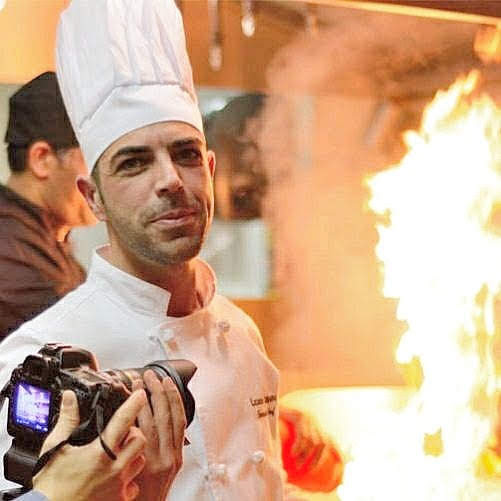Why True Cooking Will Always Belong to Human Hands
The culinary world is evolving faster than ever. Artificial Intelligence (AI) is reshaping industries, streamlining processes, and even stepping into creative fields once thought untouchable. In kitchens around the world, AI now assists with inventory tracking, menu planning, and even writing recipes.
And yet, as a chef, I firmly believe that no matter how advanced technology becomes, it will never replace the human palate—the instinct for flavor, texture, and emotion that defines real cooking.
Culinary Arts: A Skilled Trade, Not an Algorithm
Cooking is not simply a task or a formula. It is a craft, a discipline, and a language of love. Every chef learns through years of repetition, failure, and discovery. You don’t just learn to follow recipes—you learn to feel them.
A true chef tastes, adjusts, senses, and creates. The rhythm of chopping vegetables, the scent of garlic as it hits the pan, the intuition that tells you when a sauce has reached perfection—these are things that no machine can truly understand.
AI may process data, but it cannot interpret the story behind a dish. It cannot ever replace your palate, the flavor, the texture, the story, and the love for cooking. These are the elements that turn food into memory, and memory into culture.
How AI Can Support, Not Replace, the Chef
Despite its limits, AI does have a place in the kitchen—when used as a tool, not a replacement. The most successful chefs will be those who embrace technology to complement their artistry.
AI can help us:
- Manage Inventory: Automatically track ingredients, minimize waste, and predict future needs with precision.
- Design Recipes: Generate ideas, organize ingredients, and adapt recipes for dietary preferences or scalability.
- Analyze Menus: Identify best-sellers, cost efficiencies, and customer preferences to help businesses thrive.
- Ensure Consistency: Support large-scale operations in maintaining quality control.
But even with these advantages, the creative spark—the soul of a dish—must come from the chef. Technology can write a recipe, but it cannot taste it. It can measure salt, but it cannot feel balance.
The Soul of Cooking Will Always Be Human
Food is one of the most intimate expressions of culture. It tells stories of heritage, family, and tradition. The aroma of simmering tomatoes, the warmth of freshly baked bread, the smile of a guest tasting something made with care—these are experiences born of love, not logic.
A computer can calculate calories, but it cannot recreate the feeling of a meal shared around the table. It can generate thousands of recipes, but none with the warmth of a grandmother’s kitchen or the artistry of a chef who’s dedicated their life to flavor.
The future of food will depend on our ability to balance innovation with intuition. We must use technology to enhance our craft, not to erase it.
A Message to the Next Generation of Chefs
To the young chefs entering the industry: embrace technology, but never forget your roots. Learn the science, master the tools, but hold onto the heart of the craft.
AI might make you faster, but passion will make you unforgettable.
Cooking is not just about feeding people—it’s about connecting with them. Every dish you create tells a story, and that story must come from you.
In Conclusion
Artificial Intelligence may be a helpful assistant, but it will never be a chef. It will never know the joy of seeing someone smile after tasting your food, nor will it understand the journey that brought your flavors to life.
AI can assist your hands, but it cannot replace your heart. Because in the end, it is the human touch that gives food its soul. L’amore per la cucina (the love for cooking) is irreplaceable.

